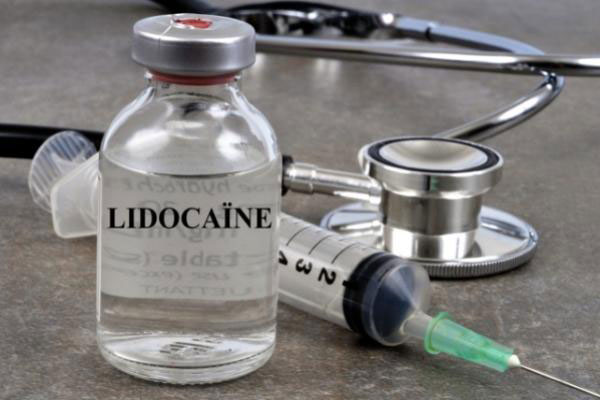Anesthetic medicines are a very useful invention when it comes to operating procedures in clinics. But it can be even more useful than that. It can stop you from feeling the pains of surgical instruments while treating dental problems.
Lidocaine viscous is also an anesthetic drug, frequently used to treat sore throat, numbing purposes before certain operations.
All this being said, you never like to swallow Lidocaine viscous. It’s not intended to
To be swallowed. In fact, in large enough quantities, it can cause fatal side effects.
That’s why it’s important to know what is in that bottle of Lidocaine viscous? What to do if someone accidentally or intentionally swallows any? What are the symptoms of swallowing this drug? Let’s say that you’re typically careful if you happen to accidentally gulp down while treating?
To get these answers, read this post. Here you can find out: what happens if you swallow lidocaine viscous? Small amounts of lidocaine viscous cause no more effects. But its larger amounts may cause irregular heartbeats, Serious blurry vision, fainting, unconsciousness, sweating, breathing trouble, spasm, and many serious complications.
Generally, overdoses enter the blood through gums, seizures. If you are careful about your health, just go through the details of his anesthetic product.
What is a Lidocaine Viscous
Lidocaine viscous is a local numbing medicine used for anesthetic purposes. Viscous lidocaine, also known as Lidocaine HCL Solution, works as a freezing agent to numb the mucous membranes of a mucositis patient. Mucositis is a disease of mouth ulcers, sore throat, or gums. People suffer Mucositis during getting their cancer treatments. Generally, doctors prescribed lidocaine viscous to reveal mucositis pain.

Precaution:
Lidocaine viscous should be avoided to treat infants’ teeth pain.
Don’t try to treat normal infections like flu, cough, or strep throat with lidocaine viscous.
How To Use Lidocaine Viscous
Lidocaine viscous can be used in a variety of medical practices to temporarily decrease sensation before an injection. It may also be applied to the skin to numb a part of the body before an upcoming surgery. Let’s cover some important ways to apply this anesthetic medicine safely:
1. Read The Instructions Before Using
Whenever your doctor prescribes lidocaine viscous for you, you should read its instructions on the label. Follow the exact amount of this medicine as mentioned. In case, if you are not understanding the prescription info, ask your doctor to guide you.
2. How to Apply Lidocaine Viscous
There is an applicator with this topical medicine, you can use an applicator, fingertips, or a piece of cotton to apply it on the spotted area. Never apply this drug to your eyes.
3. Use The Proper Amount Of Lidocaine Viscous
Excessive amounts of lidocaine solution are toxic for the human body. Normally, its slightest amount is enough to numb the affected area of a patient. So, avoid using the improper dosage
4. Don’t Try To Swallow Lidocaine Viscous
Swallowing this medicine is harmful. So be careful, when you are applying it inside your mouth, throat, or on your gums.
5. Stop Eating For 1 Hour After Applying
Wait for an hour after using this anesthesia. Once your throat or mouth gets numbness, You may feel difficulty in eating or swallowing. Be careful not to chew or eat while your numbness exists.
6. Use Measuring Spoon For Exact Dosage
Always shake the bottle of medicine before use. Extract the prescribed amount in a specific measuring spoon. Household spoons are not suitable for exact dosage. Avoid mixing the drug with some other food or drink without your doctor’s prescription.
7. Take Care Of Different Age Groups
The proper dosage is prescribed after checking your medical check-up and immunity. In children, the dosage depends on their weight or age. If you increase the dosage on your own, it would be risky for your child’s health. Take a gap of 3hours before the next dose. Don’t repeat the dosage more than 4 times in 12-24 hours.
The normal recommended dosage for adults is 15 ml/ dose. Adults should wait for 3 hours before taking the next dose. More than 6-8 doses in 24 hours will be risky. It is good to use the medicine according to your doctor’s advice.
What Happen If You Use The OverDosage of Lidocaine Viscous
Call the ambulance to seek emergency aid, if somebody has ingested the excess dose. Each medicine has its side effects. Just like, an improper dosage of lidocaine viscous may disturb your heartbeats, Serious blurry vision, fainting, unconsciousness, sweating, breathing trouble, spasm, and many serious complications. However, overdosing on gums is not more dangerous.

The lidocaine viscous is one of the hepatotoxic substances if it is used in higher doses. With that, drug abuse becomes a very significant deadly problem. This drug is used to numb the site, in turn, the overdosage begins to take effect by its liver toxicity.
What Are The Side Effects of Lidocaine Viscous
If you develop rashes, breathing trouble, or facial inflammation on your lips, face, or tongue, seek immediate first aid. Stop using lidocaine viscous, if you feel these side effects:
- Drowsiness, anxiety, uneasiness, tension, or discomfort
- Sluggishness, poor breathing, and a slow pulse rate
- A feeling of weakness, as if you’re about to die
- Numbing or a cold sensation
- diarrhea
- Eyesight is blurred
Doctors prescribe this anesthesia when they see that its benefits are greater than that of its adverse effects. Because this drug does not show adverse effects on many people.
What Precautions Should You Take?
Lidocaine viscous is not a safe medicine. You should read the warnings about this drug before starting it. Consider the following points to avoid adverse effects:
Points To Consider Before Using Lidocaine Viscous
- If you have an allergy to any anesthetic component of lidocaine viscous, clarify with your doctor about it.
- If you are taking some other medicine, such as multivitamins, iron supplements, or herbal treatments. Inform your doctor about it.
- Inform your doctor about your pregnancy, or breastfeeding. Your doctor will guide you in such conditions.
What To Do If You Miss A Dose?
- Try to replace the delayed dose, as fast as you recall.
- It is good to ignore the skipped dose when the time of the next dose is near.
- Never try to take its double dose, if you have missed a single one.
What Happens If Lidocaine Viscous Mix With Other Drugs
Lidocaine Viscous does not affect the other medicines. However, several medicines can cause side effects after interacting with each other. So, it is important to mention the list of medicines you are taking before your doctor prepares a new prescription for you.

How To Store And Dispose of Lidocaine Viscous
- Store this medication tightly closed in its original packaging.
- Keep it away from the reach of children and pets.
- Keep it away from wetness or heat, room temperature is alright to store it.
- Avoid draining this medicine in your toilets.
- After the expiry date, ask your disposal removing company to dispose of it in a proper way.
Frequently Asked Questions
Can You Swallow Lidocaine Viscous?
You can swallow viscous lidocaine when you take it inside your sore throat to gargle with it. You splash the viscous lidocaine in your mouth and gargle and swallow if you feel any pain in your mouth and down your throat. You should take two doses at once.
Is Lidocaine Poisonous If Ingested?
Oral lidocaine is generally safe if used carefully so as prescribed. Excess, misuse, or overdosing, can result in various serious health consequences, or death. Lidocaine can cause nerve damage in the throat and mouth, making it hard to swallow and potentially causing suffocation.
Can Swallowing Lidocaine Make You Sick?
Each medicine has side effects. Some effects are long-lasting, but others are temporary. In fact, no medicine is free of side effects. If a patient swallows topical 4% lidocaine, it will cause vomiting and nausea.
How Long Does Oral Lidocaine Last?
If lidocaine is used with epinephrine, it will last possibly longer. Whereas, it will last for half an hour in normal conditions. Its anesthesia depends on its dosage, immune, and infected area. Usually, heavy amounts of lidocaine will last much longer.
The Takeaway
In this post, we have tried to introduce lidocaine viscous, its side effects, and treatments. If you swallow lidocaine viscous, don’t get worried. It will cause some severe problems, like dizziness, blurred eyesight, vomiting, anxiety, breathing troubles, fatal weakness, etc.
Small doses shouldn’t cause more issues. Higher doses in a short time need instant medical aid. By avoiding the overdosage, and improper uses of every medicine, you can use the medicine to treat your disease. Otherwise, you have to face more problems.


